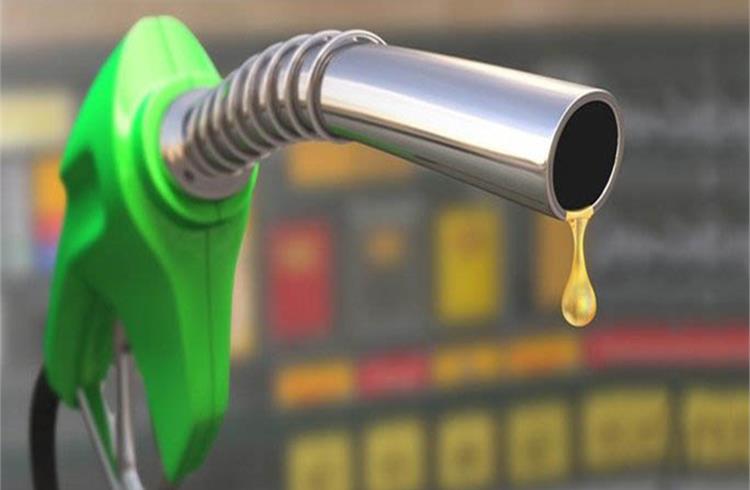Ministry of petroleum and natural gas releases highlights of 2017-18
The government of India has released a list of key initiatives taken by the ministry for the year 2017-18.
The domestic auto market is seeing robust sales, and with ICE vehicles the preferred choice among consumers, the heavy dependency on import of crude oil could play a dampener to the Indian economy. According to the year-end highlights released by the Ministry of Petroleum & Gas, of the total crude oil consumed in the country, 82.9 percent (220.43 MMT valued at Rs 565,951 crore, a growth of 3.04 percent) came from imports. In 2017-18 the total domestic crude-oil production for the year stood at 35.68 MMT (million metric ton), down by 0.92 percent YoY. 204.92 MMT is the provisional figure of the petro-products consumption for the year 2017-18.
With the current Brent crude oil price retailed at $60 per barrel (Rs 4,292), the petrol prices in Mumbai today stood at Rs 75.91 a litre and that of diesel at Rs 67.66 a litre. This was a year when petrol prices peaked its highest at Rs 92.93/litre and diesel at Rs 80.34/litre in the country. The high prices were partly influenced by a lifetime record low dollar-rupee exchange rate, which was Rs 73.42 to a dollar.
The government has released a list of initiatives that it undertook from the year 2017-18, which it says, it will carry forward to alleviate the effect of the fuel prices on the economy.
-Policy for relaxations, extensions and clarifications under Production Sharing Contract (PSC) regime for early monetisation of hydrocarbon discoveries, 2014.
This, the government says will be a paradigm shift from Production Sharing Contract (PSC) regime to Revenue Sharing Contract (RSC) regime. The Open Acreage Licensing Policy (OALP) gives the option to select the exploration blocks without waiting for formal bid round.
-Natural gas grid
In order to promote the usage of natural gas as a fuel/feedstock across the country and move towards a gas based economy, the development of additional 13,500km gas pipeline is under way to complete the gas grid.
-Estimation of hydrocarbon resource potential in the country
The prognosticated conventional hydrocarbon resources in 26 sedimentary basins of the country is around 41.87 billion tonnes (oil and oil equivalent of gas), which is about 49 percent more as compared to earlier estimates of 28.08 billion tonnes.
-Different entities are importing Liquefied Natural Gas (LNG) from global gas markets to meet the rising demand of gas in the country. The total import for the year from the four terminals came out to 26.3 MMTPA (million metric ton per annum).
-fixed remunerative price for ethanol procurement based on raw material under Ethanol Blended petrol (EBP) programme-
-From C-heavy molasses at Rs 43.46 per litre
-From B heavy molasses / partial sugarcane juice at Rs 52.43 per litre-Price of ethanol for the mills, who will divert 100 percent sugarcane juice for production of ethanol thereby not producing sugar, has been fixed at Rs 59.19 per litre. This price will be paid by OMCs to those sugar mills who will divert 100 percent sugarcane juice for production of ethanol thereby not producing any sugar.
The government has also allowed production of ethanol from damaged food grains with a pricing of Rs 47.13 per litre.
It is reported that in the year 2017-18, the blending quantity of ethanol with petrol was 149.54 crore litres and the average blend percentage was 4.19 percent, which is the highest in the history of EBP programme. The OMCs are in the process of setting up 12 2G bio-refineries with an investment of Rs 10,000 crore.
As per the official reports, as on October 30, 2018, OMCs have procured 7.97 crore litres of Biodiesel. At present there are 23 refineries in operation in India, of which 18 belong to the public sector, three with private sector and two as a joint venture, having a total refining capacity of 247.566 MMTPA. Out of the refining capacity of 247.566MMT, 142.066 MMT is in the public sector, 17.30MMT in the joint venture and the balance 88.2 MMT is in the private sector.
Also read: Maharashtra to get a mega refinery from Saudi Aramco and Indian Consortium
Government to invest Rs 70,000 crore in CNG infrastructure, 10,000 CNG stations by 2030
Government outlines plan for pushing compressed bio-gas for vehicles
RELATED ARTICLES
Bosch hydrogen engine tech-powered truck to be on Indian roads this year
The global supplier of technology and services is betting big on both electromobility and hydrogen. While announcing the...
IIT Bombay inaugurates Arun Firodia Research Floor
IIT Bombay, one of India’s top technical and research institutions, honours Kinetic Group chairman Dr Arun Firodia, one ...
Maruti Suzuki expands capacity at Manesar plant by additional 100,000 units
New assembly line at Plant A expands total manufacturing capacity at the Manesar plants to 900,000 units per annum. Alon...





 By Autocar Pro News Desk
By Autocar Pro News Desk
 13 Dec 2018
13 Dec 2018
 4819 Views
4819 Views









